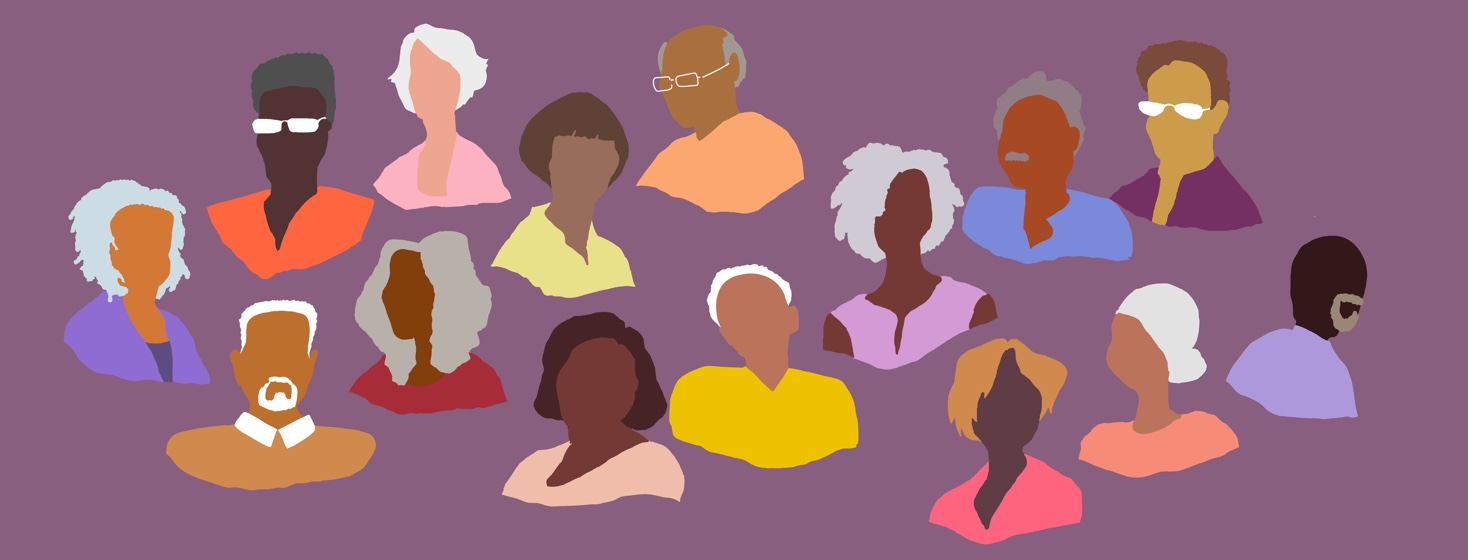Racial and Ethnic Disparities in Alzheimer's Disease
The number of people being diagnosed with Alzheimer's disease is growing. More than 6 million Americans age 65 and older are living with the disease. But there are disparities (differences) in rates of Alzheimer's disease between non-Hispanic white people, Hispanic/Latino people, and Black people in the United States.1
People of color get Alzheimer's disease more often
Older Black people are 2 times more likely to develop Alzheimer's disease than white people. And Hispanic/Latino people are 1.5 times more likely to develop Alzheimer’s disease than white people.1
Some of this has to do with other diseases that increase the risk of Alzheimer's disease, such as heart disease, stroke, high blood pressure, and diabetes. These conditions are more common in the Black and Hispanic/Latino communities. Rates of Alzheimer's disease also may be related to stress levels and living conditions.2
Higher stress
Research shows that early childhood stress can affect your brain and impact memory. Greater lifetime stress has been linked with poorer cognition later in life. Black people report more stressful life events than white people because of discrimination and racial inequality.2-4
Living conditions
Living in a lower-income or disadvantaged neighborhood is linked with higher rates of Alzheimer's disease as well. Living in a poorer neighborhood can negatively affect people's health in a number of ways. This is because people have more trouble accessing:2,4,5
- Healthy foods
- Safe exercise options
- Clean air and water
- Quality education
- Good healthcare
People of color are diagnosed less often
Though they are more likely to develop Alzheimer's disease, people of color are less likely to be diagnosed with the condition. There are a variety of reasons for this.2,5-8
A 2019 study points to a potential genetic cause. It showed that Black Americans make less of the tau protein that is used to diagnose people with Alzheimer's disease. That means the standard test may not come back positive for many Black people with Alzheimer's disease.5
Other factors leading to lower rates of diagnosis in these communities may include:2,7,8
- Lack of access to high-quality healthcare
- Discrimination when seeking healthcare
- Cultural stigma
- Misunderstanding the symptoms
Underrepresentation in clinical trials
Another disparity related to race and Alzheimer's disease is that people of color are widely underrepresented in clinical trials. Currently, only about 15 percent of clinical trial participants are Black. And only about 7.6 percent are Hispanic/Latino.6,9
Because fewer people of color join clinical trials, less of their data is included in the results. That means the findings of the studies may not benefit them as much as they benefit white people.6,9
Several things may impact clinical trial participation:6,9
- Mistrust of clinical trials and the fear of being "experimented on"
- Concerns about getting sick
- Lack of access to the trial
- Time commitment
- Cost of participation
- Language barriers
- Less awareness about clinical trials
- Researchers' lack of recruitment of communities of color to join clinical trials
Care and use of services
Black and Hispanic/Latino Americans are typically diagnosed with Alzheimer's disease at later stages of the disease than white people are. This later diagnosis means their disease is at a more advanced stage. They are more cognitively impaired and need more doctor, hospital, and home health services and treatment. And their treatment is more expensive at this stage.8
Increased treatment cost for advanced disease may explain why Medicare payments are 35 percent higher for Black people and 7 percent higher for Hispanic/Latino people than they are for white people in the United States.8
Understanding disparities in Alzheimer's disease
Experts agree that genetic factors do not account for the higher rates of Alzheimer's disease in people of color. The underlying reasons for the differences in who gets this condition are complex and connected. Important related issues include:2,8
- Other health risks such as heart disease, high blood pressure, and diabetes
- Exposure to stress, including economic and social challenges
- Social factors that affect how people feel about memory loss and dementia
- Mistrust of the healthcare system
- Discrimination and racial bias
More work is needed to understand racial and ethnic disparities in Alzheimer's disease. Greater awareness of the early warning signs, how to manage risk factors, and how to get care when needed are critical for treating people with Alzheimer’s disease.2,8

Join the conversation